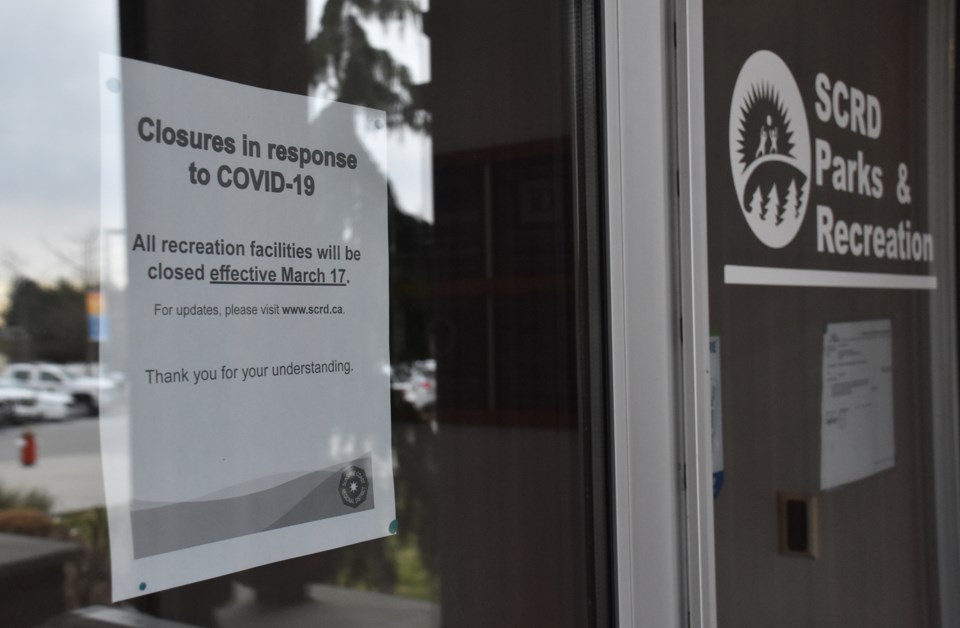Tentative plans are underway to re-open some Sunshine Coast Regional District (SCRD) recreation facilities in September – but the regional district wants to know how the public feels about reopening with COVID precautions and the tax hike that could come as a result.
SCRD aquatic and community centres and arenas have been closed since March 17, and some recreation staff were laid off temporarily or had their hours reduced.
Because of the closures and lost revenue from user fees, the SCRD recreation budget has fallen into a deficit of $9,567. Staff layoffs helped keep it from ballooning.
Directors wrestled with restart options at a July 23 committee meeting and ultimately recommended installing ice and re-open the Gibsons and Area Community Centre and re-opening the Sunshine Coast arena for dry floor use from September to December.
Operations would be at “service level two,” which would allow for fitness classes and other programming with modifications to stay in line with public health rules and guidelines.
The Pender Harbour Aquatic and Fitness Centre would be opened Sept. 14 at “service level one” – meaning no instructor-led programs and other service limitations.
A decision about opening the Sechelt Aquatic Centre has been delayed until September, and the Gibsons pool would remain closed for the rest of 2020.
Those committee recommendations were expected to be finalized at the board meeting later in the day July 23, which would have allowed staff to immediately begin the re-opening process.
Instead, directors voted to hold off until a special board meeting planned for July 30 to give SCRD staff a chance to gather public feedback.
Reopening the facilities would come at a cost – staff estimated a deficit of up to $1 million by year end, which would have to be covered by an expected tax hike of five per cent.
That tax hike gave directors pause.
Roberts Creek director Andreas Tize said he was “fairly uncomfortable” with making a decision that could result in a large tax increase without an opportunity for public input.
Town of Gibsons director David Croal raised the idea of seeking corporate sponsorship to cover costs. In response staff said “nothing is off the table.”
Elphinstone director Donna McMahon took the strongest stance against a running a deficit to re-open.
“A lot of people in Elphinstone are in tight financial circumstances at the best of times,” she said. “Tax increases hit them very hard.”
“I’m willing to stand up and take the flack for tax increases for critical services … but to impose significant tax increases for figure skating and swim meets is a harder sell where I come from.”
And if a second wave hits there could be more expenses if facilities are forced to close again, she said, before making a motion to keep all facilities closed for 2020. It died on the table.
Staff will also be bringing back information for directors to consider a “COVID-19 surcharge” to a mitigate operating costs, and are also expected to work with the Chinook Swim Club “on strategies to maximize value to the user group for their lane fee investment.”
In a statement, Sunshine Coast Minor Hockey Association (SCHMA) president Stuart Frizzell said the association is “gravely concerned” about the implications of the committee recommendation.
The SCMHA and the Sunshine Coast Skating Club had requested ice be installed in Gibsons August 4. “While the immediate impact of this decision will cancel the extraordinary opportunities for local kids that we have scheduled at GACC in August, our larger concern is the prolonged closure of recreation facilities across the coast,” said Frizell, adding that federal and provincial governments need to support municipalities” to provide the public with access to rec facilities, which he called a “fundamental service.”



